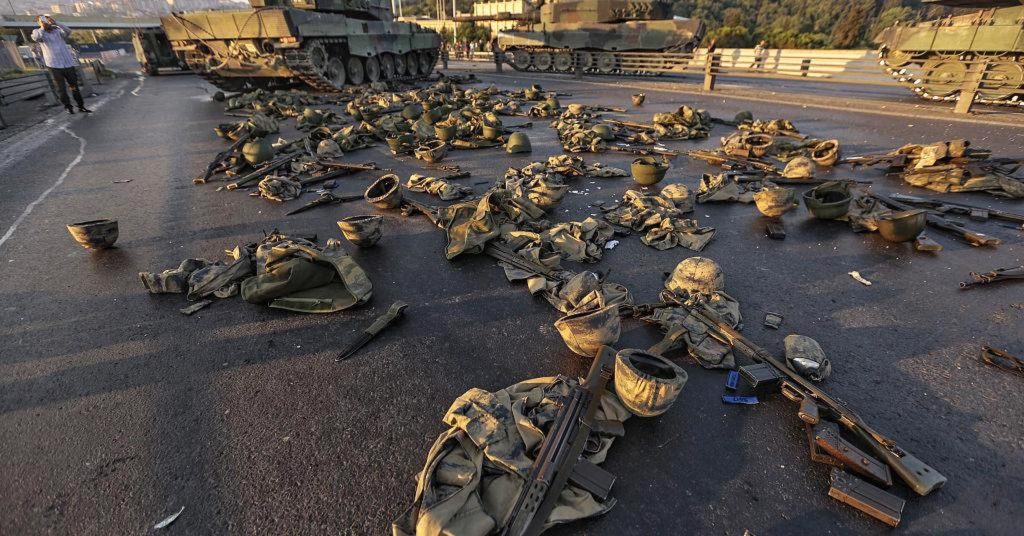Developments taking place in Turkey are followed closely and with interest by our partners and allies including Belgium.
This is to some extent normal and expected given Turkey’s geo-strategic importance as an ally and its status as a candidate country to the EU. However, the perception about Turkey has generally been negative especially after the coup attempt perpetrated by the Fetullahist terrorist organization (FETO) on 15th of July, 2016. In fact, most of the measures taken in Turkey against FETO have often been portrayed to claim Turkey as drifting away from the western democratic norms and values.
I believe that leaving aside the ill-intended circles, this fallacy or the misunderstanding, to say the least, might be somehow related to a lack of dialogue and insufficient knowledge about what FETO is and what really took place on July 15th. Hence, on the occasion of the 4th anniversary of the coup attempt, I would like to take this opportunity to provide a more in-depth analysis of these questions.
First, one should recall what transpired on that traumatic night: Our Parliament, the Presidential complex, and police headquarters were bombarded by F16 pilots, which turned out to be members of FETO that infiltrated into our army. The plotters tried to assassinate our President as well as several members of the democratically-elected Government. Tanks were driven to the streets against innocent civilians, while helicopters and jets shot everyone in sight.
Constituting one of the deadliest terror attacks in our history, this heinous act was also the bloodiest coup attempt ever in the vast geography of the European continent since the end of the Cold War. What FETO members sought to destroy was the democratic constitutional order of a founding member of the Council of Europe, by overthrowing the democratically-elected government and institutions of our Republic. Yet, thanks to the resolve of the Turkish people to defend their democratic constitutional order, the coup was thwarted.
However, this victory came with a tragic loss: That night two hundred and fifty of our fellow citizens perished, while more than two thousand people were injured.
The aftermath of the coup attempt clearly revealed the dark nature of FETO: As led by Fetullah Gülen, FETO disguised itself as an education movement and gradually turned into a secretive operational structure aiming to transform the society by taking control of the Turkish state from within.
By brainwashing young minds at schools founded under the pretext of training activities, they indoctrinated a large group of radical followers, who carried out the instructions of the organization without questioning. Graduates of these schools were able to infiltrate the most critical institutions of the State in a clandestine fashion through various criminal methods such as stealing of exam questions and recruiting those with a loyalty to FETO, all awaiting “the right moment” to overthrow the democratic Republic.
It was clear that any state confronting such a colossal crime syndicate, would not only suffice with prosecuting the ones involved in the coup attempt itself, but also the abetting ones who helped FETO prosper financially and ideologically while being fully aware of its real nature. This naturally included those who assumed different positions in the public and private sectors as a result of their ties and membership to this terrorist network.
In this regard, Turkey had to undertake comprehensive and extraordinary measures by declaring the state of emergency as permitted in international law, against this existential threat. This was done within the boundaries of law by paying due attention to the balance between security and freedoms.
Throughout the state of emergency, Turkey pursued policies in line with its international human rights obligations and observed the principles of necessity, proportionality and legality, with the availability of domestic judicial and administrative remedies for recourse in case of alleged wrongdoings.
Through this period, which took 2 years until the end of the state of emergency in July 2018, in addition to the existing domestic remedies, the Inquiry Commission on State of Emergency Measures was established in 2017 with a view to receiving applications regarding administrative acts carried out pursuant to Decree Laws enacted during the said special period.
Since then, the said Commission has reviewed more than 100.000 individual applications related to alleged unlawful dismissal and closures, by rendering inter alia several decisions of reinstatement. Naturally domestic legal remedies are also available against the decisions of the Commission, which has long been recognized as a domestic remedy by the European Court of Human Rights (ECtHR).
It is regrettable that, during this difficult period, we have not witnessed enough solidarity and cooperation from our allies and partners in Europe. Turkey was more or less left alone in its struggle against this existential threat. In fact, we have seen that some countries in Europe even preferred criticizing Turkey for the measures it had to undertake, rather than condemning the coup attempt.
Here, it is worth mentioning that in one recent judgement related to the coup attempt in Turkey dated 20 March 2018, the ECtHR clearly underlined that “the attempted military coup disclosed the existence of a public emergency threatening the life of the nation within the meaning of the Convention.”
This being said, all the measures undertaken during this period were implemented in transparency and in coordination with all relevant international human rights bodies, notably the Council of Europe.
Turkey has paid attention to acting in line with its international human rights obligations and the principle of rule of law even during the period of the state of emergency. In this vein, all of our citizens have been able to appeal court decisions and apply to the ECtHR if necessary.
Today, as judicially established with several rulings given by the relevant courts in the aftermath of the coup attempt, the fact that FETO is a terrorist and criminal organization which orchestrated the coup attempt has already been confirmed and upheld by Turkish supreme courts.
The 16th Criminal Chamber of the Court of Cassation ruled on 24 April 2017 that FETO is an armed terrorist organization. The Court of Cassation defined FETO as a “sui generis criminal organization” which acts in accordance with the instructions received from the ringleader of the organization, uses religion to establish a new political, economic and social order, has infiltrated into the state from the bottom to the top and dismissed its opponents through various illegal methods.
In view of the foregoing, it is promising that a clear awareness about the dark nature of this organization is developing, albeit slowly. In fact, various countries and international organizations have declared FETO as a terrorist organization. Unlawful acts carried out by FETO-affiliated organizations have come to surface in many countries after a closer monitoring of their activities, which gladly led to extraditions of FETO members as well as the closure of FETO affiliated schools and associations.
Yet, we regret to see that individuals & organizations affiliated with FETO still continue to operate in several European countries. Those FETO members and affiliates can easily live and work under the protection of asylum while poisoning the countries and societies where they operate against Turkey.
In this context, I would like to underline once again that, while FETO-affiliated bodies try to disguise the real nature through its education & charity activities, they are indeed part of a dark and sinister organization which also constitutes a threat to the security and public peace of the countries where it remains active.
Nevertheless, now is the time to look to the future. I prefer to remain optimist. It is our sincere wish that more and more countries will come to a better grasp of the clandestine and criminal nature of this organization in the coming period. Turkey will continue to work in full cooperation with these countries against this common threat to humanity.
Dr. Hasan Ulusoy
Ambassador of Turkey to the Kingdom of Belgium


